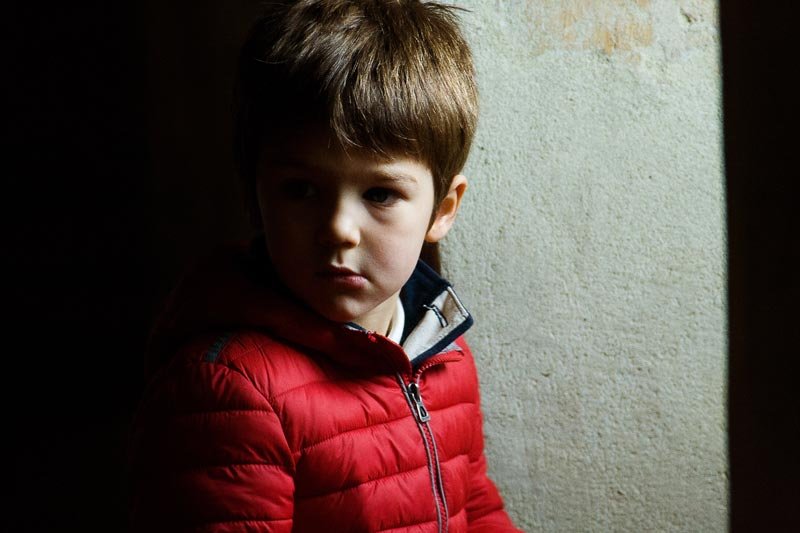One summer evening, long after dusk, I was relaxing on a porch in a comfy chair next to a novelist I’d just met when she softly announced, “The stars in the sky look like an ocean. But I’m high, so maybe that’s just a stoner-thought.” I flicked my eyes up and verified that the cloudless, night sky did indeed resemble a boundless ocean, then I assured her, “No, no. It does look like an ocean.” I understood her concern because stoner-thoughts—while they may appear initially as profound, inspired ideas—often collapse under scrutiny. That said, I am fond of stoner-thoughts, whether philosophical or whimsical, and I like to collect them.
When I am alone, I sometimes record my inspired observations with a voice recorder app on my smartphone—it’s a tool that helps me remember and catalogue snippets of dialogue or ideas for my writing. Sometimes I record inspiration for future poems and occasionally I have fully formed stoner-thoughts. My latest recording was the question: “Why do I have happy memories?”
The question arose because I had been thinking back to my childhood friend, Philip, and recalling all the fun we had together as kids. Philip was special because he was an only child, and he had a trove of toys to make any kid jealous. His parents spared little expense on his personal comfort; he even had a queen-sized waterbed! What seven year-old kid has a queen-sized waterbed? The answer to that question is predicated on social class but for me, as a child, waterbeds were luxury.
For me, happy memories exist so that I can be shocked by the transformations of time.
I first met Philip when my mother was babysitting him in our home to earn extra income. He was several years younger than me, and I saw the potential for him to become a surrogate younger brother. Initially, my mom would drop me off at his house for Friday night sleepovers, and Philip’s mom would drive me back home for Saturday dinner—or when I was lucky, I would spend an extra day and night with my friend. Then later, when I was old enough to walk the neighborhood road unattended, I would visit him at his house on my own. I could cut through a parcel of wooded forest to reach his back yard, and I also rode my bike to his home.
We slept together in the aforementioned waterbed and bounced each other endlessly with the waves. I’m sure at some point the activity must have grown tiresome, but I only remember having fun in that bed. On Saturday mornings, we played in the den in front of a big TV and constructed forts and tunnels with the cushions from a sprawling sectional sofa. We played the time-honored game “the carpet is lava” and hopped around the den from perch to perch. Laughter and constant giggling gilded our time together; we read children’s jokes from books and acted out funny or dramatic scenes from TV shows. We collected the same toys and both loved Transformers and Legos; we even went to see the animated Transformers movie at the theater together.
The deeper I dove into my memories of Philip, the greater my amazement grew at how specific and vivid the memories were.
I remembered one particular summer of endless adventure at his grandparents’ Appalachian home. We went swimming in a river where we found and caught crawfish under rocks, we bathed together in a huge claw-foot tub, and we played mountain climbers on a giant mound of gravel by the roadside. It was probably the most magical, special summer of my childhood.

Eventually, as we grew older, we drifted apart. I entered middle school while he was still in elementary school, and before long, Philip was an old playmate I had outgrown. The last occasion I remember socializing with him was at our hometown skating rink. It was a special night for Philip—I think it was his birthday—and I met him at the front entrance to the rink. As we passed through the doors, an attendant stopped us and told Philip he had to remove his baseball cap before going inside—a safety measure.
This proved to be a significant snare because Philip was bald; he had lost all his hair from chemotherapy treatments. His baseball cap granted him a sense of normalcy, and though I had visited him once before at the hospital, I had no notion of the fear and terror he felt about removing his baseball cap in public. I remember the look in his eyes—so strange to me. I had never seen the expression on his face before. It was despair and fear—perhaps mixed with betrayal because I had glided through the entrance and looked back unconcerned and miffed by his plight.
When I recall the teenage years that followed our childhood, I construct a bitter narrative of cruel events. As people say: life happened. Philip was ravaged by cancer as a child (a large, inoperable tumor behind his nose), and I was ravaged by emerging homosexuality. Neither one of us survived fully intact. He endured a nightmare of bone marrow biopsies and radiation treatments unique to pediatric oncology patients, and I watched helplessly as my future dreams and self worth collapsed into a burning heap summed up by one word: faggot.
So back to my question: why do I remember happy times?
I’m sure there are evolutionary theories explaining the role of traumatic memory. Painful experiences trigger fear, and people avoid situations that remind them of their pain. Is the same true of pleasurable memories? Do I seek out situations that remind me of my past joy?
Not really. I am disconnected from my past, and I have been obsessed with eradicating it. If you understand the power of fresh starts, maybe you can relate. Still, my memories persist in spite of efforts to outgrow and forget them. They encroach into my present life—mostly when I am alone and introspective.
The answer to my question is a product of my personal experiences and is uninformed by the wisdom of my elders—though I have a hunch about what my friends would say. For me, happy memories exist so that I can be shocked by the transformations of time. Every place and person that has been special to me will be altered by time. Meanwhile, happiness exists in the present. It resides in moments of each new day. I neither cling to happy memories nor revere them. They just are. With the same consideration, I would do no less to the painful ones.

Featured image: Playing by Corrie Barklimore. CC license.
Share this post with your friends.

